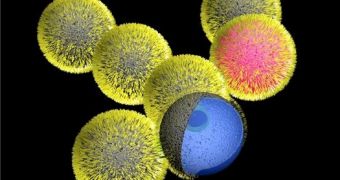€1.8 million were recently granted by the European Union's Future and Emerging Technologies (FET) Proactive Initiatives. The funds were given to Dr. Maurits de Planque (biochemist) and Dr. Klaus-Peter Zauner (computer scientist) at the University of Southampton's School of Electronics and Computer Science. These two researchers are to lead a team of scientists in the endeavor of creating a computing solution based on chemical processes akin to those present in the human brain. The final 'wet' computer would be unaffected by the information-processing limitations present in silicon-based solutions.
"What we are developing here is a very crude, minimal liquid brain and the final computer will be 'wet' just like our brain," Dr. Zauner said. "People realise now that the best information processes we have are in our heads and as we are increasingly finding that silicon has its limitations in terms of information processing, we need to explore other approaches, which is exactly what we are doing here."
The project is entitled Artificial Wet Neuronal Networks from Compartmentalized Excitable Chemical Material. The efforts will be aimed at adapting brain processes to a 'wet' information-processing scenario, yielding transistor-like constructs made up of chemicals placed inside a tube. The first step will be engineering lipid-coated water droplets, which contain an excitable chemical medium.
The idea was inspired by biological cells. The droplets would then be connected into networks in which they can use chemical signals to 'communicate.' The second objective is the design of information-processing architectures based on these droplets. These architectures would have to be able to demonstrate purposeful information processing.
"Our system will copy some key features of neuronal pathways in the brain and will be capable of excitation, self-repair and self-assembly," Dr. de Planque added. The third and final step in the development of the 'wet' computing solution would be the exploration and establishment of the new technology's potential and limitations.
The project will run for three years and will be co-ordinated by Friedrich Schiller University of Jena, the University of the West of England, Bristol, and the Institute of Physical Chemistry from the Polish Academy of Sciences, Warsaw.

 14 DAY TRIAL //
14 DAY TRIAL //